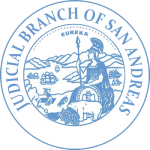Ayrton Hadfield
Founder
Staff member
Founder
Server Management
Developer
Alpha Tester
battchief
prealpha
Article I. General Provisions
Rule 1.1 Purpose
These rules should be considered so as to administer every proceeding fairly, eliminate unjustifiable expense and delay, and promote the development of evidence law, to the end of ascertaining the truth and securing a just determination.
Rule 1.2 Rulings on Evidence
To the extent practicable, the court must conduct a jury trial so that inadmissible evidence is not suggested to the jury by any means.
Rule 1.3 Preliminary Questions
- Relevance that depends on a fact. When the relevance of evidence depends on whether a fact exists, proof must be introduced sufficient to support a finding that the fact does exist. The court may admit the proposed evidence on the condition that the proof be introduced later.
- Evidence relevant to weight and credibility. This rule does not limit a party's right to introduce before the jury evidence that is relevant to the weight or credibility of other evidence.
Rule 2.1 Test for Relevant Evidence
Evidence is relevant if:
- it has any tendency to make a fact more or less probable than it would be without the evidence; and
- the fact is of consequence in determining the action.
Relevant evidence is admissible unless any of the following provides otherwise:
- the United States Constitution (and through applicable caselaw);
- these rules; or
- other rules prescribed by the Supreme Court.
Rule 2.3 Excluding Relevant Evidence for Prejudice, Confusion, Waste of Time, or Other Reasons
The court may exclude relevant evidence if its ability to make a relevant disputed point more or less true is substantially outweighed by a danger of one or more of the following: unfair prejudice, confusing the issues, misleading the jury, undue delay, wasting time, or needlessly presenting cumulative evidence.
"Unfair prejudice" within its context means an undue tendency to suggest decision on an improper basis, commonly, though not necessarily, an emotional one.
Rule 2.4 Character Evidence
- Prohibited Uses. Evidence of a person's character or character trait is not admissible to prove that on a particular occasion the person acted in accordance with the character or trait.
- Exceptions for a Defendant or Victim in a Criminal Case. The following exceptions apply in a criminal case:
- a defendant may offer evidence of the defendant's pertinent trait, and if the evidence is admitted, the prosecutor may offer evidence to rebut it;
- subject to the limitations in Rule 2.12, a defendant may offer evidence of an alleged victim's pertinent trait, and if the evidence is admitted, the prosecutor may:
- offer evidence to rebut it; and
- offer evidence of the defendant's same trait;
- in a homicide case, the prosecutor may offer evidence of the alleged victim's trait of peacefulness to rebut evidence that the victim was the first aggressor.
- Exceptions for a Witness. Evidence of a witness's character may be admitted under Rules in Article IV.
- By Reputation or Opinion. When evidence of a person's character or character trait is admissible, it may be proved by testimony about the person's reputation or by testimony in the form of an opinion. On cross-examination of the character witness, the court may allow an inquiry into relevant specific instances of the person's conduct.
- By Specific Instances of Conduct. When a person's character or character trait is an essential element of a charge, claim, or defense, the character or trait may also be proved by relevant specific instances of the person's conduct.
Evidence of a person’s habit or an organization’s routine practice may be admitted to prove that on a particular occasion the person or organization acted in accordance with the habit or routine practice. The court may admit this evidence regardless of whether it is corroborated or whether there was an eyewitness.
Rule 2.7. Subsequent Remedial Measures
When measures are taken, post-factum, that would have made an earlier injury or harm less likely to occur, evidence of the subsequent measures is not admissible to prove:
- negligence;
- culpable conduct;
- a defect in a product or its design; or
- a need for a warning or instruction.
Rule 2.8. Compromise Offers and Negotiations
- Prohibited Uses. Evidence of the following is not admissible — on behalf of any party — either to prove or disprove the validity or amount of a disputed claim or to impeach a witness/declarant by a prior inconsistent statement or a contradiction:
- furnishing, promising, or offering — or accepting, promising to accept, or offering to accept — a valuable consideration in compromising or attempting to compromise the claim; and
- conduct or a statement made during compromise negotiations about the claim — except when offered in a criminal case and when the negotiations were related to a claim by a public office in the exercise of its regulatory, investigative, or enforcement authority.
- Exceptions. The court may admit this evidence for another purpose, such as proving a witness’s bias or prejudice, negating a contention of undue delay, or proving an effort to obstruct a criminal investigation or prosecution.
Rule 2.9. Offers to Pay Medical and Similar Expenses
Evidence of furnishing, promising to pay, or offering to pay medical, hospital, or similar expenses resulting from an injury is not admissible to prove liability for the injury.
Rule 2.10. Pleas, Plea Discussions, and Related Statements
- Prohibited Uses. In a civil or criminal case, evidence of the following is not admissible against the defendant who made the plea or participated in the plea discussions:
- a guilty plea that was later withdrawn;
- a nolo contendere plea;
- a statement made during a proceeding on either of those pleas; or
- a statement made during plea discussions with an attorney for the prosecuting authority if the discussions did not result in a guilty plea or they resulted in a later-withdrawn guilty plea.
- Exceptions. The court may admit a statement described in Rule 2.10.(1)(3) or (4):
- in any proceeding in which another statement made during the same plea or plea discussions has been introduced, if in fairness the statements ought to be considered together; or
- in a criminal proceeding for perjury or false statement, if the defendant made the statement under oath, on the record, and with counsel present.
Evidence that a person was or was not insured against liability is not admissible to prove whether the person acted negligently or otherwise wrongfully. But the court may admit this evidence for another purpose, such as proving a witness’s bias or prejudice or proving agency, ownership, or control.
Article III. Privileges
Rule 3.1. Privilege in General
The common law — as interpreted by United States courts in the light of reason and experience — governs a claim of privilege unless the United States Constitution provides otherwise.
Rule 3.2. Attorney-Client Privilege and Work Product
- Definitions:
- “attorney-client privilege” means the protection that applicable law provides for confidential attorney-client communications; and
- “work-product protection” means the protection that applicable law provides for tangible material (or its intangible equivalent) prepared in anticipation of litigation or for trial.
- Any material produced under attorney-client privilege or work-product protection may not be disclosed to a third party, nor admitted to court, without the explicit written consent of the client and the attorney.
Last edited:

